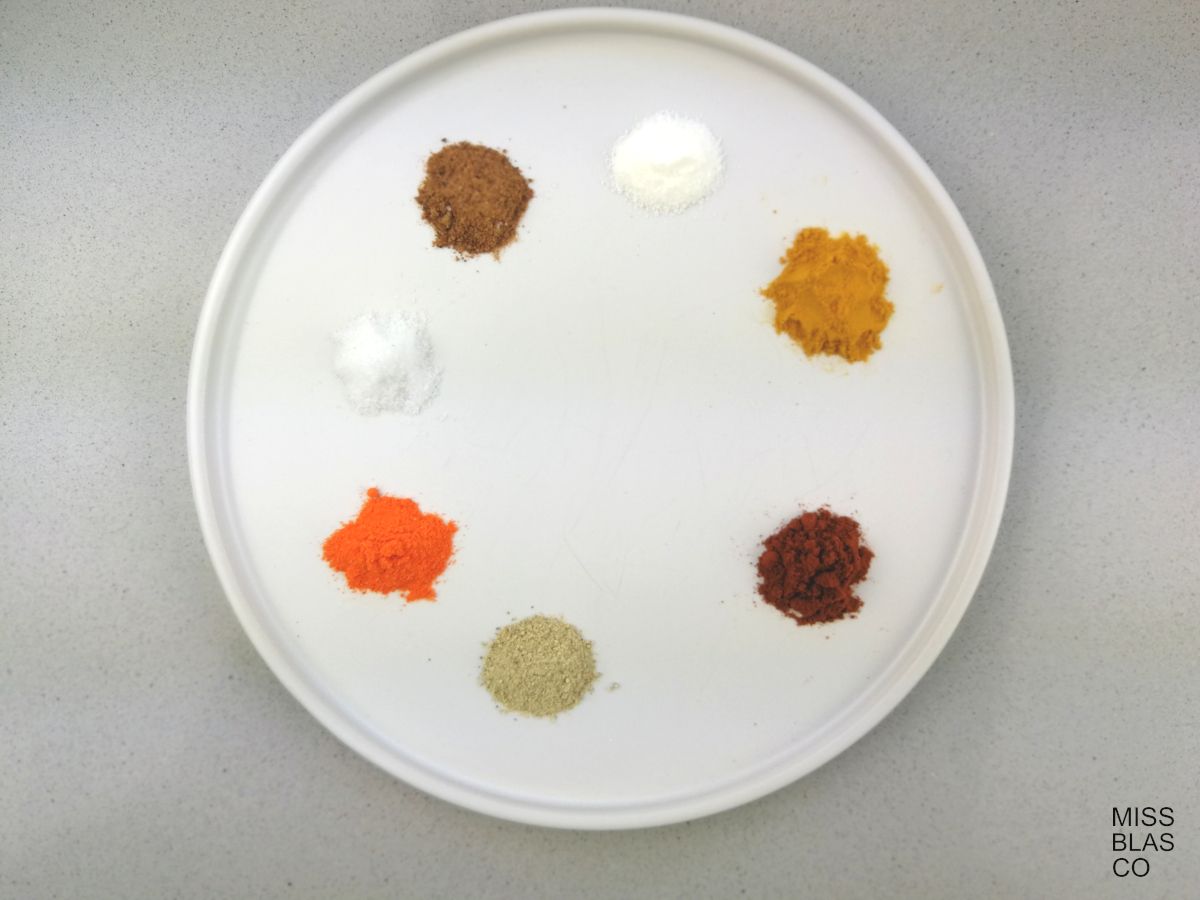
10 Common Additives in Sausages and Deli Meats
10 Common Food Additives in Sausages and Deli Meats: What You Need to Know
Ultra-processed sausages and deli meats are staples in many diets, but their ingredient lists often hide a range of additives that can impact your health. From nitrites linked to cancer risks to phosphates and hidden sugars, these substances prioritize shelf life and appearance over nutrition. As a dietitian passionate about nutritional education, I’m here to break down the 10 most common food additives in sausages and deli meats, explain their risks, and empower you to make healthier choices. By understanding what’s in your food and opting for homemade alternatives, you can take control of your diet and protect your family’s well-being. Let’s dive in!
Why Be Concerned About Additives in Processed Meats?
Sausages, deli meats, and other meat preparations like hamburgers and nuggets are often marketed as convenient, protein-packed options. However, these ultra-processed products typically contain only 45–55% actual meat, with the rest made up of starches, gelatins, and additives. These additives serve various purposes: preserving freshness, enhancing flavor, improving texture, or increasing volume to cut costs. Unfortunately, many of these substances offer no nutritional value and may pose health risks, especially when consumed regularly.
The World Health Organization (WHO) classified processed meats as Group 1 carcinogens in 2015, linking them to an increased risk of colorectal cancer, partly due to additives like nitrites. Children, who often consume deli meats in sandwiches or snacks, are particularly vulnerable to the cumulative effects of these additives. By reducing reliance on ultra-processed meats and preparing homemade alternatives, you can prioritize real, wholesome ingredients.
Ultra-processed sausages and deli meats contain additives like nitrites, phosphates, and sugars that may pose health risks.
10 Common Additives in Sausages and Deli Meats
Below, we explore the 10 most common additives found in processed meats, their purposes, and their potential health impacts:
1. Nitrites and Nitrates (E-249–E-252)
-
Purpose: These preservatives prevent bacterial growth (e.g., Clostridium botulinum) and enhance the red color of meats.
-
Health Impact: In the stomach, nitrites react with proteins to form nitrosamines, toxic compounds linked to gastric and colon cancer. High intake requires vitamin C from fruits and vegetables to mitigate risks. Recent studies, like one reported by The Observer (The Guardian), question the necessity of nitrites, suggesting they could be phased out.
-
Note: Nitrates from plant sources (e.g., beets, spinach) are less harmful and may even support heart health by forming nitric oxide.
2. Phosphates (E-338–E-452)
-
Purpose: Phosphates retain water to keep meats juicy and extend perceived freshness.
-
Health Impact: Linked to cardiovascular issues, phosphates were largely banned in the EU in 2008, with exceptions for some sausages and cheeses. The EU rejected their use in kebabs in 2017 due to overuse concerns.
-
Prevalence: Found in 85% of pre-cooked foods, including German sausages.

3. Sulfites (E-220–E-228)
-
Purpose: Antioxidant preservatives that maintain the red color and freshness of meats.
-
Health Impact: Sulfites can destroy vitamin B1 and trigger reactions in asthmatics. They’re also used in wine and some pre-cooked foods.
-
Regulation: Not permitted in all products, so always check labels.
4. Monosodium Glutamate (MSG, E-621)
-
Purpose: A flavor enhancer that boosts the “umami” taste, making products more palatable and addictive.
-
Health Impact: MSG is common in snacks, pre-cooked foods, and deli meats. While generally safe in moderation, it can lead to overeating by stimulating appetite.
-
Consumer Tip: Be wary of products that leave you wanting “just one more bite.”
5. Starches
-
Purpose: Derived from corn, potatoes, or cassava, starches increase product volume, reducing meat content and costs.
-
Health Impact: They add empty calories and dilute the nutritional value of the meat.
-
Prevalence: Common in low-quality deli meats and sausages.
Nitrosamines from nitrites are linked to cancer, but plant-based nitrates from vegetables like beets are safer and beneficial.
6. Gelatins
-
Purpose: Used as thickeners to improve texture and bulk up products.
-
Health Impact: While not inherently harmful, gelatins reduce the meat content, making the product less nutrient-dense.
-
Consumer Tip: Opt for products with higher meat percentages.
7. Vegetable Fibers
-
Purpose: Added to enhance texture and allow “high-fiber” claims on labels.
-
Health Impact: Fiber is beneficial, but getting it from processed meats instead of whole plant foods is unnecessary and misleading.
-
Recommendation: Choose fruits, vegetables, or whole grains for fiber.
8. Sugars (e.g., Dextrose, Sucrose)
-
Purpose: Act as emulsifiers and add sweetness to balance salty flavors.
-
Health Impact: Hidden sugars contribute to excessive calorie intake and may increase the risk of obesity and diabetes. Look for terms ending in “-ose” on labels.
-
Prevalence: Common in many deli meats and pre-cooked products.
9. Salt
-
Purpose: Enhances flavor and acts as a preservative.
-
Health Impact: High sodium levels in processed meats can contribute to hypertension and cardiovascular issues.
-
Consumer Tip: Check sodium content on labels and opt for low-sodium alternatives.
10. Artificial Colorings and Flavorings
-
Purpose: Improve visual appeal and taste to make products more attractive.
-
Health Impact: Some artificial additives may cause sensitivities or long-term health concerns, though specific risks vary.
-
Recommendation: Prioritize natural ingredients for safer, healthier eating.
Cooking homemade deli meats is an easy way to avoid additives, control ingredients, and create healthier meals for your family.
Healthier Alternatives to Processed Meats
To avoid these additives, consider the following strategies:
- Cook at Home: Prepare homemade chicken deli meat (#) to control ingredients and reduce sodium and additives.
- Read Labels: Choose products with higher meat content (80% or more) and minimal additives.
- Opt for Plant-Based Nitrates: Get nitrates from vegetables like beets or arugula, which offer health benefits without the risks.
- Limit Consumption: Reserve processed meats for occasional use and prioritize whole foods like fresh poultry, fish, or legumes.
- Meal Prep: Organize your week with homemade deli meats that store well for 4–5 days in the fridge or up to 3 months in the freezer.

Why Cooking at Home Matters
Cooking your own food is the simplest way to avoid harmful additives. By preparing homemade deli meats or sausages, you can:
-
Use high-quality, lean meats like chicken or turkey.
-
Season with natural spices like paprika, oregano, or turmeric for flavor and antioxidants.
-
Control sodium levels to support heart health.
-
Create kid-friendly, nutrient-dense snacks for lunches or after-school meals.
Lack of time is no excuse with proper organization. Batch-prepare homemade deli meats on the weekend to enjoy healthy, additive-free meals throughout the week.
Healthy Recipes
Understanding the 10 common food additives in sausages and deli meats empowers you to make informed choices for yourself and your family. From nitrites linked to cancer risks to hidden sugars and excessive sodium, ultra-processed meats often prioritize profit over health.
By cooking at home and choosing whole, minimally processed foods, you can reduce your exposure to these additives and enjoy nutritious, delicious meals.
Start small, try making your own deli meat or reading labels more carefully and take charge of your diet today!
Juan jesus
Hola, buenos tardes,
Soy consumidor interesado en productos sin aditivos y programador.
He desarrollado una app. para móviles que busca la toxicidad de los aditivos en ingredientes con una foto.
Es multiidioma, GRATIS y rápida.
No te pide tus datos personales. NO HACE PUBLICIDAD.
SI NO TE GUSTA LA TOXICIDAD ESTABLECIDA LA PUEDES CAMBIAR.
Se llama aditfy y está en Google Play.
Quizas podrían evaluarla y ayudarme a difundirla en su web.
Comentarios para mejorarla serán bienvenidos.
Juan Jesús
missblasco
Gracias Juan Jesús, la revisaré. Saludos.
Juan jesus
Hi all,
I am a consumer interested in healthy food.
I have developed an app. for android that search the toxicity in aditives with a picture of the label.
It is a multilanguage, FREE and quick app.
No registration, no PUBLICITY, no personal data stored.
I you do not agree with the level of toxicity for an aditive you can change it in the app.
It is called aditfy and can be downloaded from Google Play.
Enjoy and comments welcome.
Juan
marielena
Gracias, muy actualizada y buena la información. Es complicado el tema ya que la industria alimenticia tiene años buscando la manera de hacer cada vez más dinero a costa de la salud. Muchas Gracias. Seguiremos aprendiendo y ayudándonos para un mejor porvenir de todos.
missblasco
Claro que sí, al final es más fácil de lo que parece, cocinando en casa se pueden evitar muchas sustancias y aditivos, que aunque estén regulados y aprobados, pueden resultar perjudiciales. Saludos y gracias por comentar. 😉
Karen Louise
This is amazing information Miss Blasco. Thank you for taking the time to educate the public on this important matter. Am sure the additives are negatively affecting the microbiome. You are more educated than many dietitians!